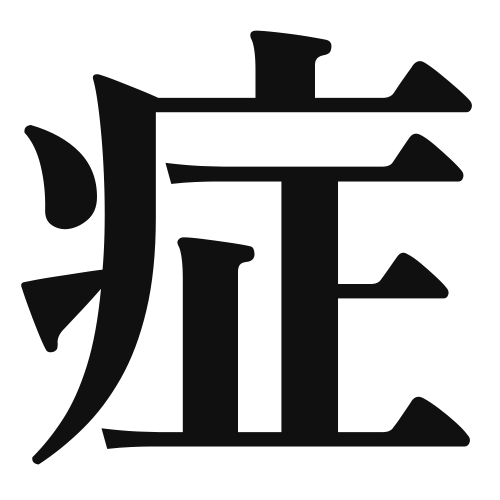1. Overview of Meaning
The kanji “症” (shou) primarily means “symptom” or “condition.” It is often used in medical contexts to describe the signs or manifestations of an illness or disorder.
2. Formation and Radical
The kanji “症” is a compound character that combines elements to convey its meaning. It consists of the radical “病” (byou), which means “illness,” and the phonetic component “商” (shou), which contributes to its pronunciation.
The radical “病” is significant as it relates to health and medical conditions, reinforcing the overall meaning of “症” as it pertains to symptoms of diseases.
3. Examples of Usage
Common words and phrases that include “症” are:
- 症状 (shoujou) – symptoms
- アレルギー症 (arerugii shou) – allergy symptoms
Example sentence in daily conversation:
「最近、頭痛の症状がひどいです。」
(Recently, the symptoms of my headache have been severe.)
4. Synonyms and Antonyms
Similar kanji with related meanings include:
- 病 (byou) – illness; refers more broadly to diseases rather than specific symptoms.
- 痛 (tsuu) – pain; focuses on the sensation rather than the condition.
Antonyms include:
- 健康 (kenkou) – health; represents a state of well-being, the opposite of having symptoms.
5. Cultural and Historical Background
The kanji “症” is deeply rooted in Japanese culture, particularly in the context of traditional medicine and health practices. It reflects the importance of understanding symptoms in diagnosing and treating illnesses.
Proverbs and idiomatic expressions related to “症” include:
- 症状が出る (shoujou ga deru) – to show symptoms; often used to indicate the onset of an illness.
This highlights the cultural significance of recognizing and addressing health issues in Japanese society.
